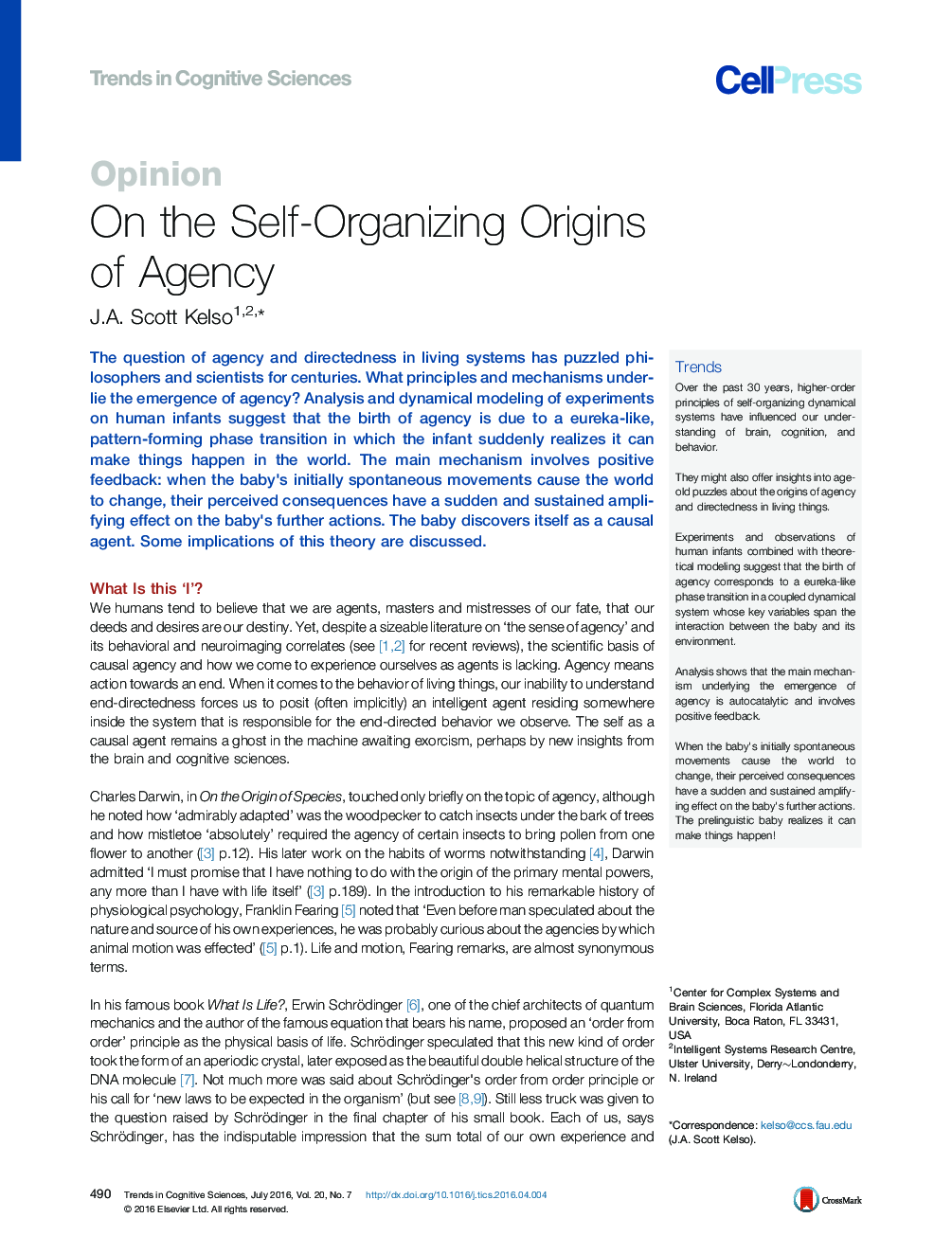| کد مقاله | کد نشریه | سال انتشار | مقاله انگلیسی | نسخه تمام متن |
|---|---|---|---|---|
| 141352 | 162858 | 2016 | 10 صفحه PDF | دانلود رایگان |
The question of agency and directedness in living systems has puzzled philosophers and scientists for centuries. What principles and mechanisms underlie the emergence of agency? Analysis and dynamical modeling of experiments on human infants suggest that the birth of agency is due to a eureka-like, pattern-forming phase transition in which the infant suddenly realizes it can make things happen in the world. The main mechanism involves positive feedback: when the baby's initially spontaneous movements cause the world to change, their perceived consequences have a sudden and sustained amplifying effect on the baby's further actions. The baby discovers itself as a causal agent. Some implications of this theory are discussed.
TrendsOver the past 30 years, higher-order principles of self-organizing dynamical systems have influenced our understanding of brain, cognition, and behavior.They might also offer insights into age-old puzzles about the origins of agency and directedness in living things.Experiments and observations of human infants combined with theoretical modeling suggest that the birth of agency corresponds to a eureka-like phase transition in a coupled dynamical system whose key variables span the interaction between the baby and its environment.Analysis shows that the main mechanism underlying the emergence of agency is autocatalytic and involves positive feedback.When the baby's initially spontaneous movements cause the world to change, their perceived consequences have a sudden and sustained amplifying effect on the baby's further actions. The prelinguistic baby realizes it can make things happen!
Journal: - Volume 20, Issue 7, July 2016, Pages 490–499
